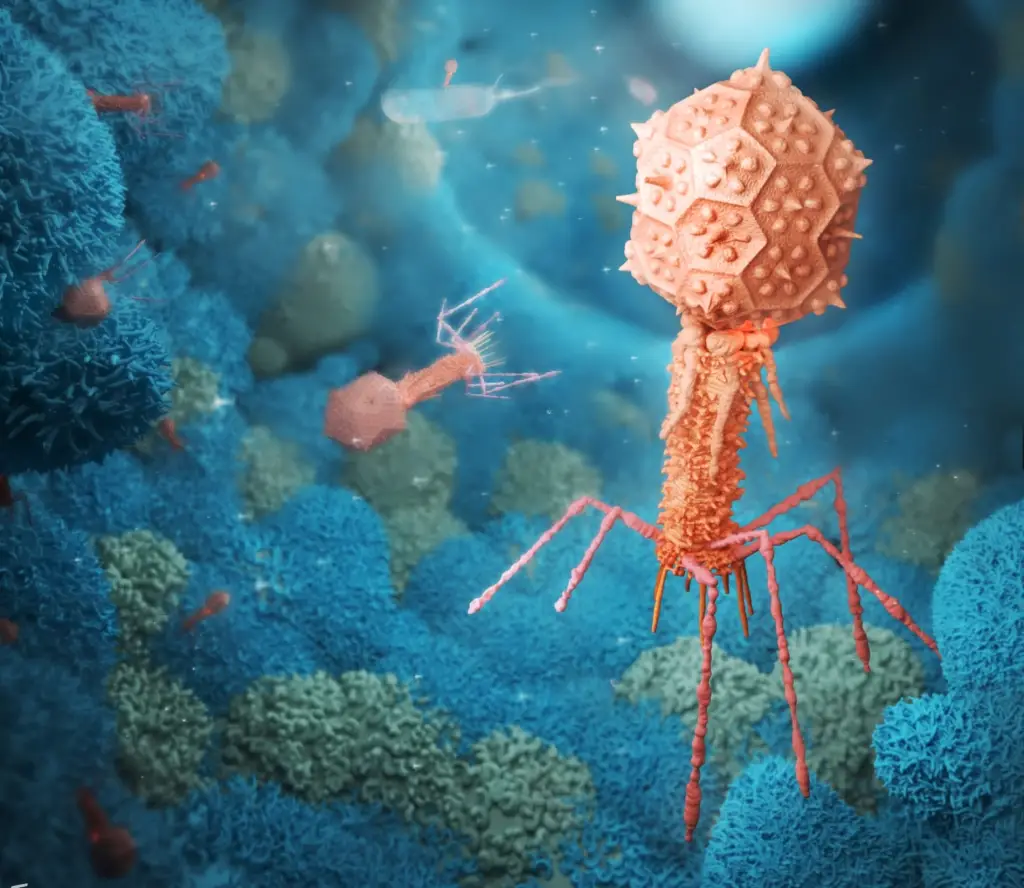In the dynamic world of scientific discovery, researchers are constantly finding innovative solutions to some of our most pressing challenges. A recent study has unveiled an approach to environmental remediation using genetically modified bacteriophages. Yes, you read that right – phages might just be the key to cleaning up heavy metal contamination in our environment.
Scientists from the Biosensor Group and Environmental Safety Group at the Korea Institute of Science and Technology Europe Forschungsgesellschaft mbH, along with researchers from the Bioprogrammable Materials Group at the INM – Leibniz Institute for New Materials in Saarbrücken, Germany, conducted a study on genetically modified fd bacteriophages for potential applications in bioremediation studies.
Published in a peer-reviewed scientific journal, this study focuses on fd bacteriophages, which are filamentous viruses that exclusively target bacteria. Researchers took these viruses and gave them a superhero-like upgrade by genetically modifying them to display a unique peptide sequence designed to bind specifically to copper ions (Cu(II)).
The visual aspect of these engineered viruses is fascinating. Atomic force microscopy (AFM) images reveal the typical filamentous structures of these virus constructs, each with a thickness of around 2-3 nanometers. Imagine tiny, flexible wires at the nanoscale – that’s the beauty of these engineered viruses.
But why the interest in copper ions? Copper, while essential in small amounts, can pose environmental risks when present in excess. The goal here is to create a biological tool that can selectively bind to and remove copper ions from the environment.
The researchers conducted a series of experiments to explore the capabilities of these engineered viruses. When exposed to a copper-rich environment, the phages displayed remarkable changes. Scanning electron microscopy (SEM) and energy dispersive X-ray spectroscopy (EDX) analyses showed that the engineered viruses formed elongated structures with a mineral layer after copper exposure, unlike their untreated counterparts.
In simpler terms, these phages acted like tiny sponges, soaking up copper ions and transforming into elongated structures with a visible coating – a visual testament to their newfound capabilities.
The study also delves into the nuts and bolts of the genetic modifications. The viruses were engineered to display different versions of a copper-binding peptide, each with varying lengths. The results? The longer the displayed peptide, the larger and more intricate the virus assemblies became after exposure to copper.
Imagine these engineered viruses as nature’s nanoscale clean-up crew. They selectively bind to copper ions, forming larger structures that can potentially be harnessed for environmental remediation. The study hints at the possibility of using these engineered viruses in bioremediation efforts to target metal species in environmental samples.
This is not just a laboratory experiment; it’s a glimpse into the future of sustainable technologies. While the study involves complex scientific processes, the core message is simple – scientists are exploring creative, nature-inspired solutions to tackle environmental challenges.
As we envision a future where technology and nature collaborate for the greater good, these engineered viruses stand as tiny ambassadors of innovation, demonstrating the potential for biologically driven solutions to real-world problems. Who would have thought that bacteriophages could be our allies in the quest for a cleaner, healthier planet?
In a world where scientific breakthroughs often feel distant and esoteric, this study brings us a step closer to a future where even the tiniest organisms can play a big role in safeguarding our environment. Nature, it seems, has more tricks up its sleeve than we could have ever imagined.
Read the full published article on Korkmaz, N., Himawan, S., Usman, M., Baik, S., Kim, M., Bacteriophage Engineering for Improved Copper Ion Binding. Macromol. Biosci. 2023, 2300354. https://doi.org/10.1002/mabi.202300354




